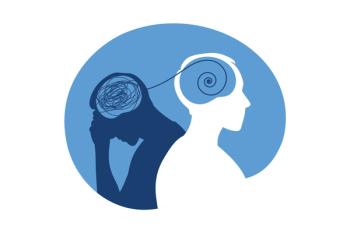
Parental Age and Risk of Bipolar Disorder
Researchers performed a systematic review and meta-analysis of paternal and maternal age and risk of bipolar disorder in the offspring.
RESEARCH UPDATE
CASE VIGNETTE
“Mr Ray” is a 37-year-old Caucasian male with an 11-year history of schizophrenia. His illness has been in sustained remission for more than a decade following treatment with clozapine. He works full-time as a professional. He got married within the past year, and he and his wife (aged 35) have considered having kids or adopting. Given their age and his history of schizophrenia, Mr Ray asks about the risk of psychiatric disorders, including autism, schizophrenia, and bipolar disorder, in his kids. How would you, as his psychiatrist, respond?
Both genetic and environmental risk factors are relevant to the etiology of bipolar disorder.1 Parental age at birth—both maternal and paternal—is a well-established environmental risk factor associated with several psychiatric disorders, including schizophrenia and autism.2,3 Several studies have investigated associations between parental age and risk of bipolar disorder in the offspring, albeit with conflicting findings. Meta-analysis is one approach that can bring increased clarity to an area of research with significant heterogeneity.
The Current Study
Polga and colleagues4 conducted a systematic review and meta-analysis of the effects of parental age at childbirth on the risk bipolar disorder in the offspring, considering paternal age and maternal age separately. The meta-analysis was performed according to PRISMA guidelines and preregistered with PROSPERO. The authors included studies of parental age at childbirth (exposure) on the risk of bipolar disorder in offspring (outcome; determined by standard diagnostic criteria, such as DSM or ICD). They considered both cross-sectional and longitudinal studies and did not restrict based on bipolar disorder subtypes (eg, I versus II). The authors searched PubMed, PsycINFO, Embase, and Web of Science. Study quality was assessed using the Newcastle-Ottawa Scale. Adjusted odds ratios (ORs) were extracted for each study. In order to enable pooling the available evidence, for paternal age, aged 25 to 34 was used as the reference group, and age < 25, 35 to 44, and ≥ 45 as the exposure groups. For maternal age, age 20 to 29 was used as the reference group, and age < 20, 30 to 39, and ≥ 40 as the exposure groups. The authors also analyzed parental age and the risk of bipolar disorder as a continuous variable by performing a dose-response meta-analysis by calculating relative risks (RRs) for 5-year age groups (setting 25 to 29 as a reference) based on raw data.
The authors identified 551 records, of which 267 were screened and 34 full texts examined for eligibility. Seven studies, including 3,183,539 participants and 23,253 individuals with bipolar disorder, were included in the meta-analysis. Compared to age 25 to 34, there was a significant increased risk of bipolar disorder in offspring of fathers aged 35 to 44 (OR=1.09, 95% CI 1.05-1.14) and ≥ 45 (OR=1.44, 95% CI 1.19-1.74). Dose-response meta-analysis found a significant dose-response association between paternal age and risk of bipolar disorder, with evidence of a J-shaped curve (nonsignificant increased risk in younger fathers age < 25).
Compared to age 20 to 29, there was a significant increased risk of bipolar disorder in offspring of mothers age ≥ 40 (OR=1.20, 95% CI 1.10-1.31). Dose-response meta-analysis found a significant dose-response association between paternal age and risk of bipolar disorder, also with evidence of a J-shaped curve.
Study Conclusions
The authors concluded that older paternal (35 to 44 and ≥ 45) and maternal (≥ 40) ages were associated with increased risk of bipolar disorder in the offspring, with evidence for a J-shaped dose-response curve (which has also been observed for schizophrenia2). Findings were consistent with another recent meta-analysis, which found a 1.17-fold increase in odds of bipolar disorder in offspring of fathers age > 40.5 Although the mechanism of this association is unclear, genetic factors (eg, de novo mutations and), delayed age of parenthood in individuals in the bipolar spectrum, and environmental factors (eg, tobacco smoking and air pollution) may contribute. Study strengths included the large cumulative sample size and being the first meta-analysis of paternal and maternal age and risk of bipolar disorder. Study limitations included the relatively small number of studies (particularly for maternal age, n=3) and methodological differences.
The Bottom Line
Both older paternal and maternal ages are associated with increased risk of bipolar disorder, with evidence of a dose-response relationship (although the majority of exposed offspring will not be affected). Further studies are needed to better understand the potential mechanisms underlying these associations.
Dr Miller is a professor in the Department of Psychiatry and Health Behavior, Augusta University, Augusta, Georgia. He is on the Editorial Board and serves as the schizophrenia section chief for Psychiatric TimesTM. The author reports that he receives research support from Augusta University, the National Institute of Mental Health, and the Stanley Medical Research Institute.
References
1. Smoller JW, Finn CT.
2. Miller B, Messias E, Miettunen J, et al.
3. Wu S, Wu F, Ding Y, et al.
4. Polga N, Macul Ferreira de Barros P, Farhat LC, et al.
5. Rodriguez V, Alameda L, Trotta G, et al.
Newsletter
Receive trusted psychiatric news, expert analysis, and clinical insights — subscribe today to support your practice and your patients.







